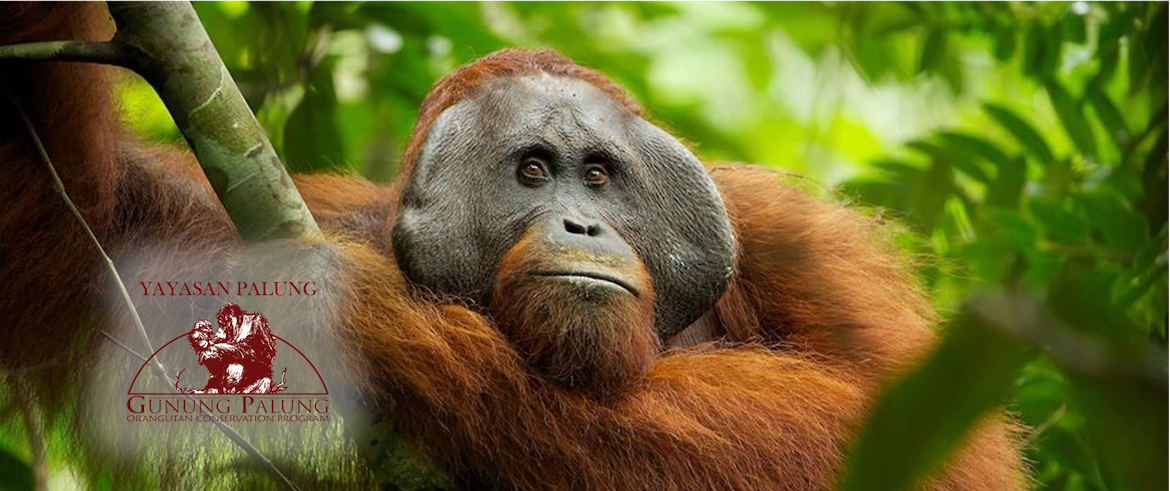By Cheryl D Knott, PhD, Executive Director, Professor, Boston University and Victoria Gehrke, Conservation Program Director
As the COVID-19 pandemic has spread across the globe, it has also reached the cities and towns of Indonesia. The Ketapang Regency, where our office is located, has now issued regulations to limit transportation and large gatherings, close schools and some non-essential business, and to practice social distancing. GPOCP was pro-active on this front, and on March 20, for the protection of our staff, schools and communities, we chose to temporarily close down our office. Now, other businesses and organizations in our region have joined this effort. Our staff have been working from home ever since. Over the years of our conservation program, we have been working on building the capacity of all of our staff, and the communities we work with, to utilize technology. This now lets us work effectively as a team during these difficult times, through the power of working remotely. Our international staff have returned to their home countries and will continue to work from home until international travel is safe again.
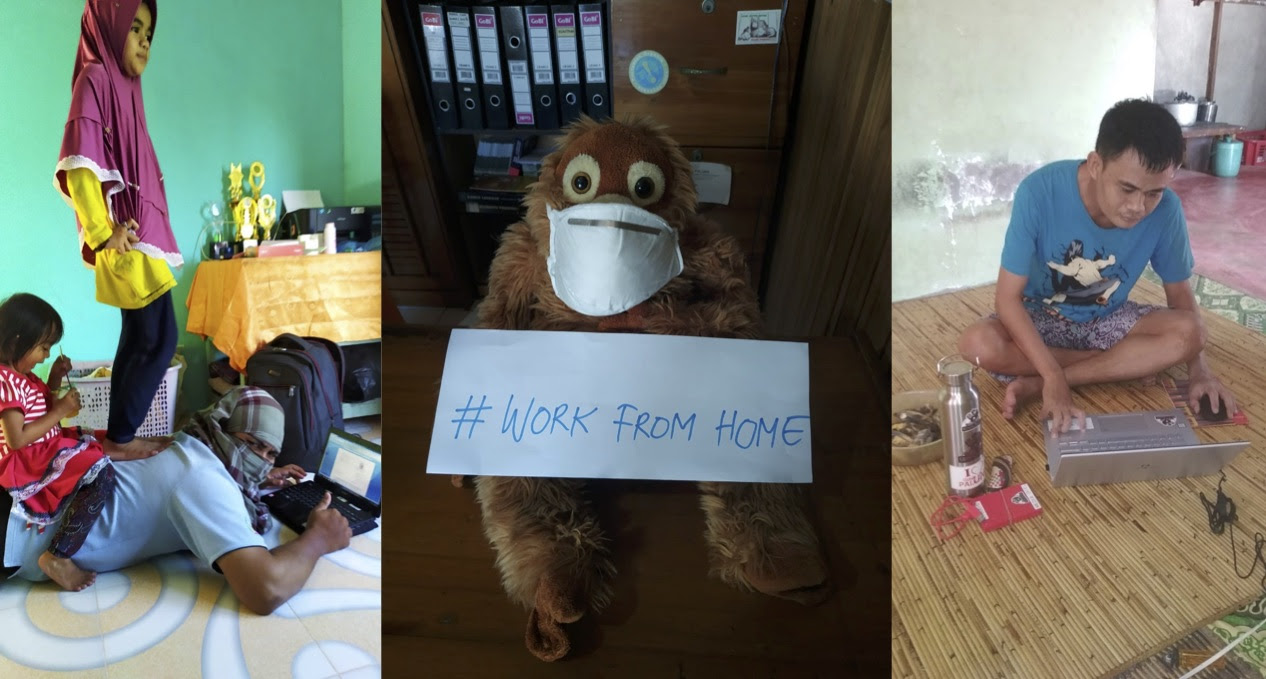
As one of our supporters, we are sure you are aware that the Gunung Palung Orangutan Conservation Program uses a community-based approach to orangutan conservation here in West Kalimantan, and the restrictions on social contact have presented new challenges for our in-situ team. Our conservation team is turning their attention to some of our long-term projects and data analysis. Some of these activities include evaluating the recent social survey data on orangutan-human conflict that we just completed, examining our drone imagery on orangutan nests and comparing our field and ground survey data, using our existing archive of videos and photos to help spread our conservation successes both locally and internationally, maintaining connections with a wide constituency of Indonesians through our radio program, and developing new skills such as learning advanced spatial analysis remotely. The world is far more connected than it has ever been, even in faraway villages in Borneo, and thus our local staff are able to maintain contact with the communities that vitally still need our support. Our dedicated staff are working remotely but keeping the communities updated through digital communications and short meetings in small numbers when necessary.
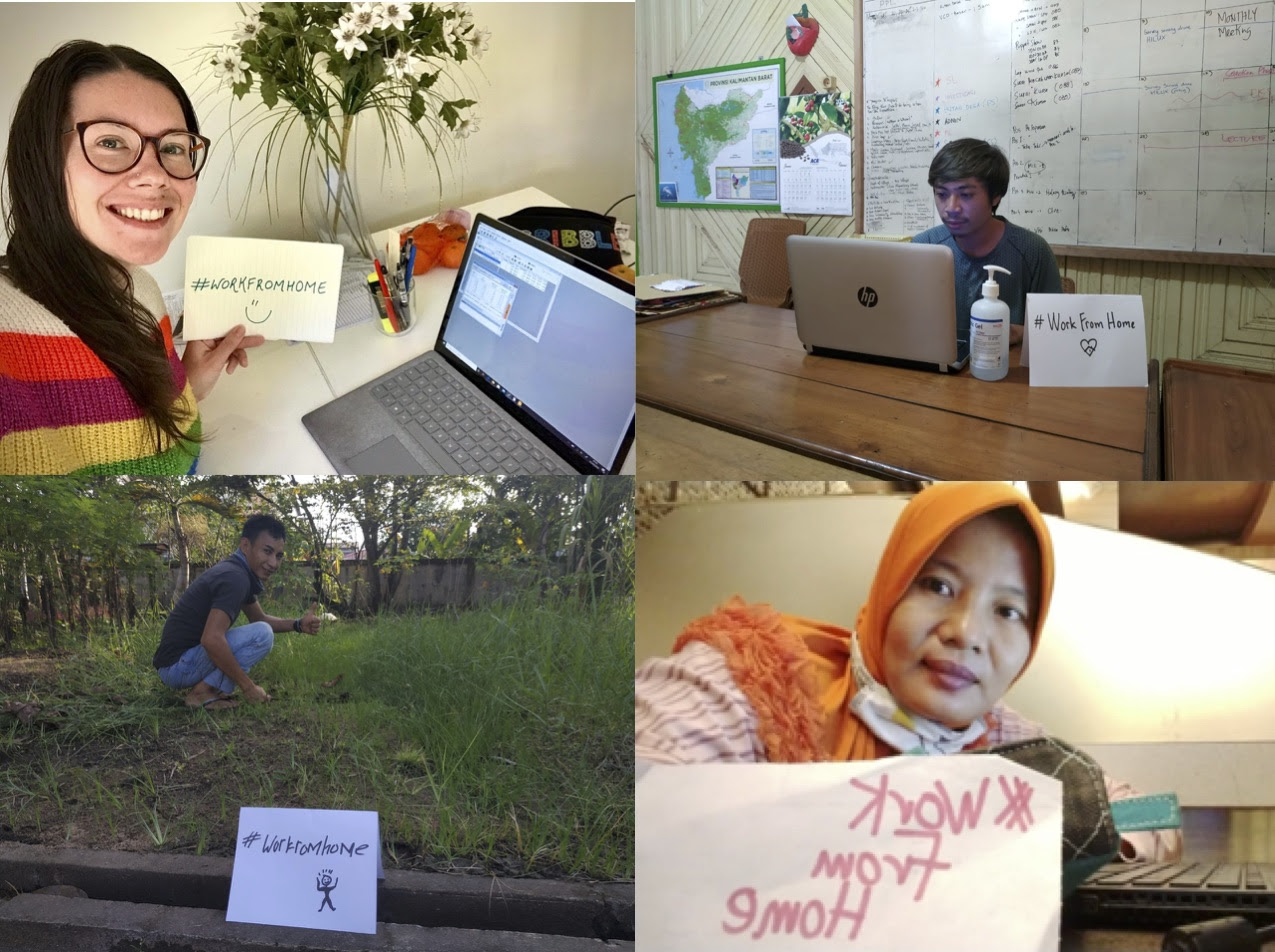
Our Sustainable Livelihoods team has had to postpone the organic food festival for now, but the silver lining is that this will allow more time for other collaborators to join in and we have a larger number of local government departments eager to join us. We have also been successful in creating an MOU with the local government regarding trade, enabling our artisan communities to sell freely at the local markets, participate in regional festivals, and provide support for making the targeted Organic Food Festival an annual occurrence instead of a one-time event. After a successful training event, we are launching an online shop for our artisans to sell their products regionally. Additionally, we have conducted a biodiversity survey in one of our target villages, Matan, and are currently analyzing the data to disseminate the results to local stakeholders.
Our Environmental Education team is using this time to re-invent some of the content of our outreach activities and produce educational posters for the Eco-Trail at our Education Center, Bentangor. Our Education team’s biggest challenge has been to rework our West Bornean Orangutan Caring Scholarship selection process that normally takes place in March and April every year. This scholarship program enables 6 motivated and underprivileged local students to attend university with a four-year scholarship for a Bachelor’s degree in a topic of their choice. These spots are highly sought after, so the selection process is quite rigorous and involves interviews, presentations and essays with guest judges. As an alternative, our team has offered the applicants the opportunity to submit videos instead of giving in-person presentations and we are conducting video calls for interviews. Our conservation awareness campaigns are in full swing as always, with a new Indonesian newsletter tentatively planned for the end of May. We are also able to continue our radio talk shows, while adjusting broadcasting time to reduce social contact. Stay tuned for our exciting Earth Day plan that has been entirely adapted to the lock down!
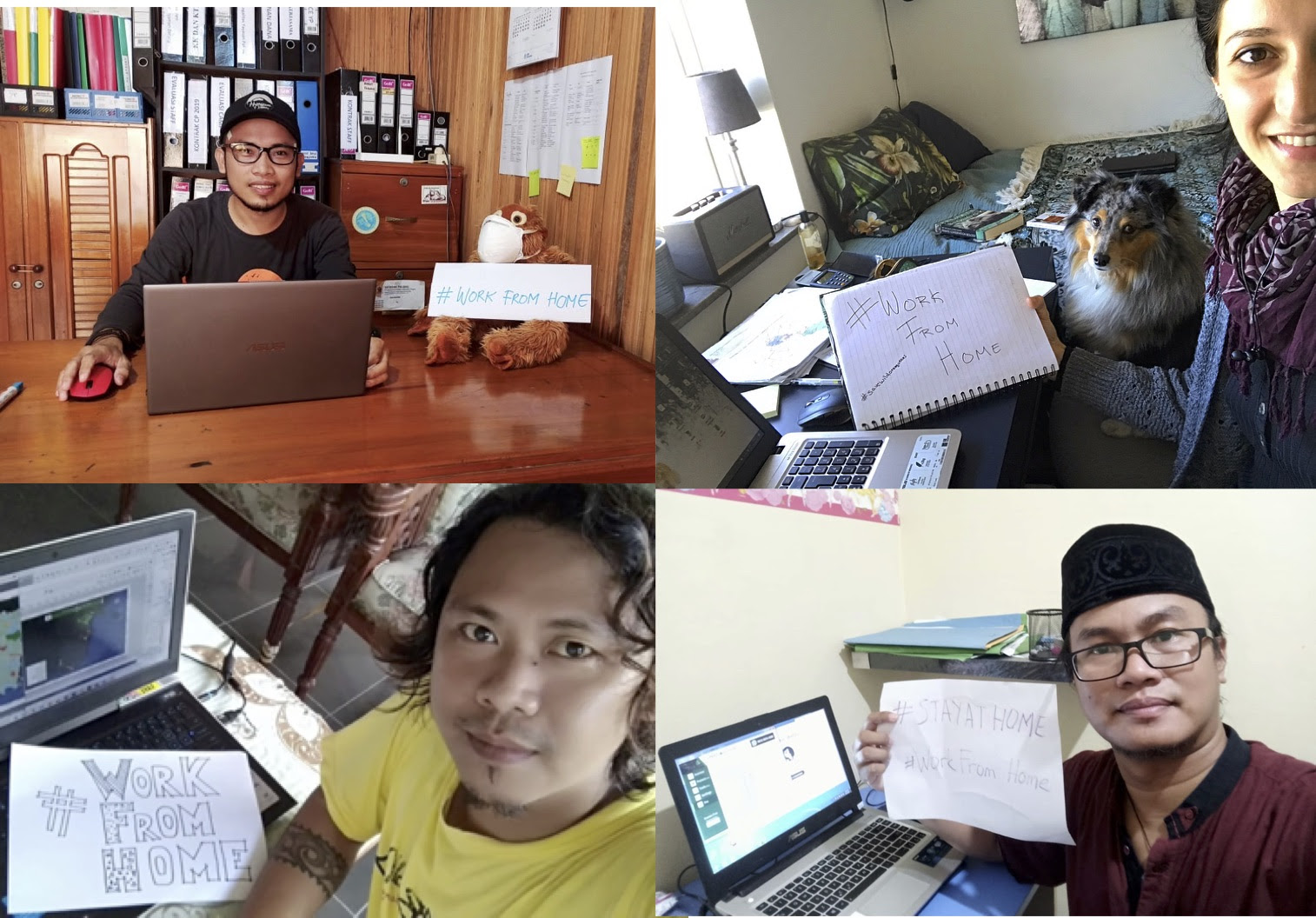
Our Customary Forest team is working on coordinating biodiversity surveys to compare to previous years and provide new baseline data for new forests, as well as updating maps and submitting reports for local government support of ecotourism and trade in our village forests. Our team recently held a successful eco-tourism workshop with our Customary Forest Management Board, bringing them one step closer to independently managing their forests for long-term conservation success and financial stability.
Luckily, our nest and drone survey team wrapped up their last survey in Gunung Palung National Park at the end of February, but we still have data entry and analysis to complete. Applied Conservation Director, Beth Barrow, is coordinating this effort from England, and working with Boston University undergraduate student, Madeline Eori, who is developing this methodology as part of her undergraduate thesis. We are also involving others, now with a lot more time on their hands, to help with this processing of images
We predicted that our Wildlife Crime and Investigations Unit would face problems gathering data from informants in the villages during these trying times, however they have been providing us with tips and data despite the social distancing restrictions in March. April’s lock down will prove more challenging for sure, but our village informants promised to keep their eyes open. Meanwhile, our team is working on detailed maps of regional illegal trade routes and conflict hot spot maps extrapolated from our Human-Orangutan Interaction survey data. We are also working to push for our reports to lead to government action regarding prosecutions and confiscations from the Natural Resources Department. As COVID-19 hits Borneo, we need to make sure that we remain vigilant. One issue we are keeping a close eye on is whether this pandemic will result in an increase in the illegal pet trade or illegal logging as forest monitoring decreases. Furthermore, economic hardship could increase pressure on local communities. Thus, we want to ensure that we continue to provide local communities with the resources they need to sustain their families without being forced to turn to activities that destroy the orangutan’s rainforest habitat.
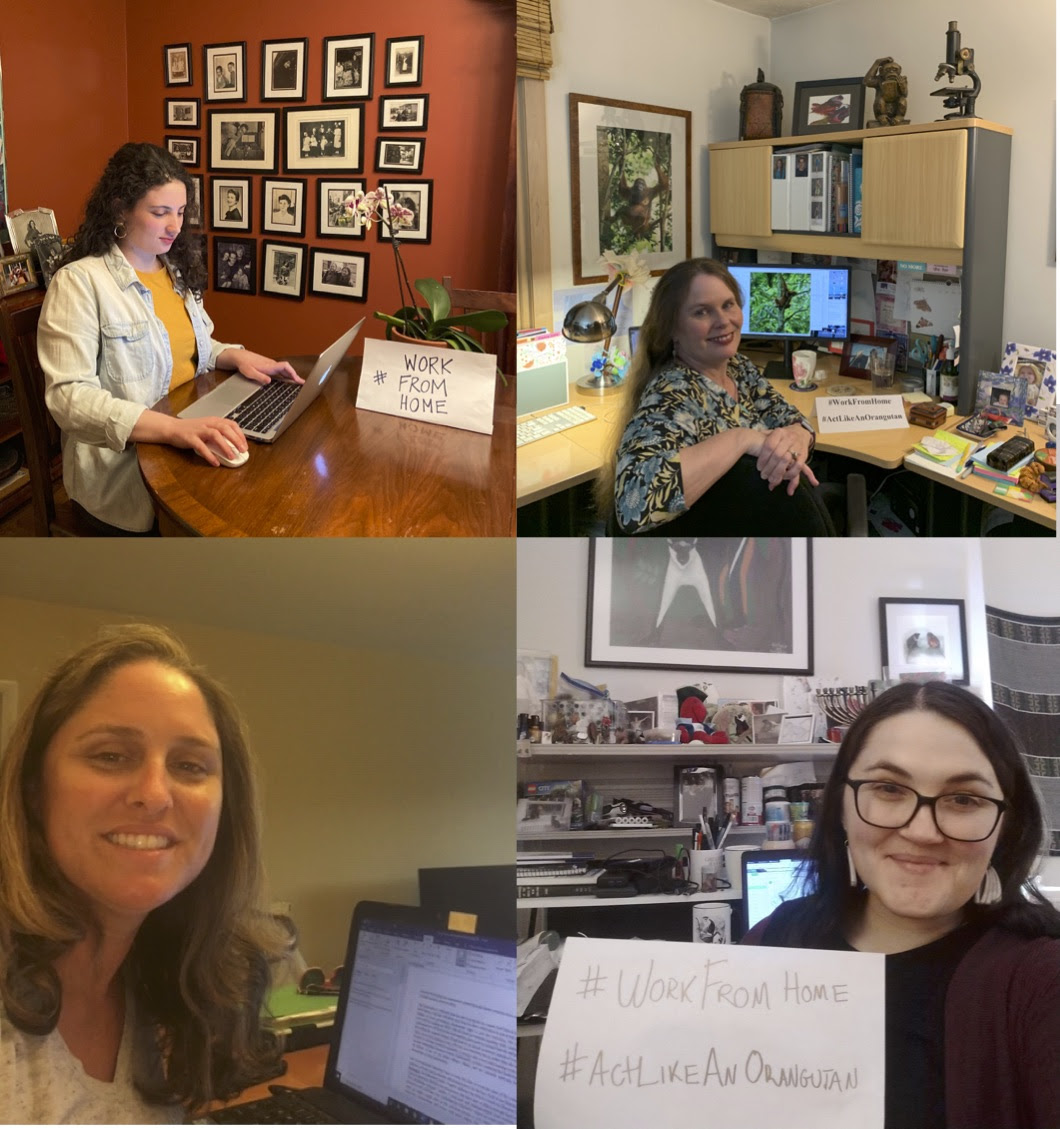
So, conservation has gone digital this spring with online events and data analysis keeping the staff engaged and continuing to meet our objectives of guiding communities towards environmentally friendly livelihoods, conserving vital orangutan habitat and protecting vulnerable wildlife. We look forward to updating you more on the projects and program as the situation develops on the ground. As conservation leaders we understand that our world is now more interconnected than ever. We hope that all of our followers and supporters from around the world remain healthy as we continue to ensure a future for wild orangutans and their habitat.
